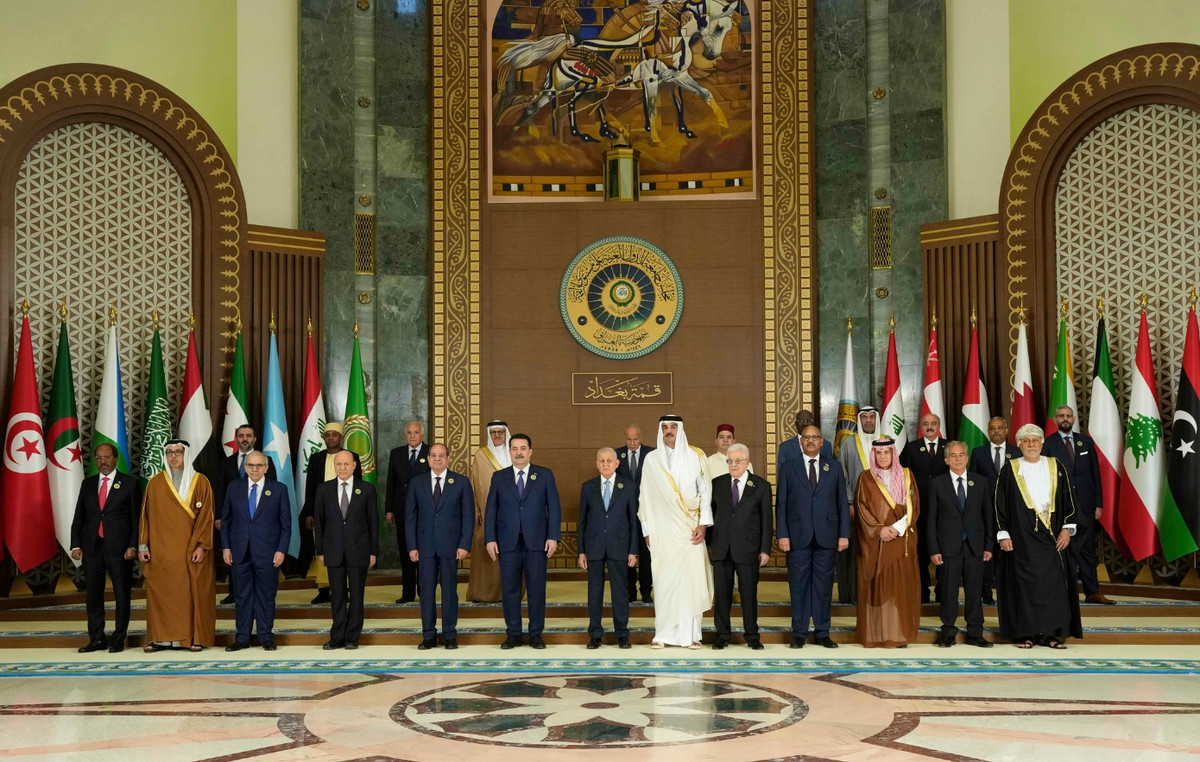Western armies are running out of ammunition to give to Ukraine, British and NATO officials warned on Tuesday, as they called on nations in the military alliance to increase production to “keep Ukraine in the fight against Russian invaders” .
News of a possible ammunition shortage comes after money to buy weapons for Ukraine was not included in a stopgap spending bill that the US Congress passed over the weekend to avoid a federal government shutdown.
New uncertainty about the future of US aid emerged on Tuesday when the country’s House Speaker Kevin McCarthy, who had advocated support for Ukraine, was removed from his leadership position by fellow Republicans.
The developments are worrying for Ukraine, as the war with Russia is in its 20th month and raises questions about whether Moscow may feel able to survive Western promises of compromise.
“The bottom of the barrel is visible” said Admiral Rob Bauer of the Netherlands, chairman of the NATO Military Committee, about the volume of ammunition from the West, during a discussion at the Warsaw Security Forum, Poland.
“We give Ukraine weapons systems, which is great, and ammunition, but not full depots. We start distributing [munições] of half-full or under-capacity warehouses in Europe” and such facilities are becoming scarce, Bauer said.
James Heappey, UK minister of state for the armed forces, speaking on the same panel, said that although arsenals may be scarce, aid to Kiev must continue and Western countries need to increase their capacity to produce more munitions.
“We have to keep Ukraine in the fight tonight and tomorrow and the day after tomorrow and the day after tomorrow,” Heappey said. That means “continuing to give, day after day, and rebuilding our own stocks,” he added.
However, analysts warn that the American “arsenal of democracy” needs to start working overtime or Ukraine’s war effort could be in trouble.
“The United States and its allies are sending a wide range of munitions to Ukraine, but they are not being produced or delivered as quickly as needed,” Thomas Warrick, a nonresident fellow at the Atlantic Council, wrote last week.
Warrick wrote that as Ukraine delayed the start of the summer offensive to bring more ammunition and equipment to the front lines, Russia was able to build defenses that significantly blunted Ukrainian advances.
“Ukraine’s forces have proven to be flexible and adaptable, but they need sufficient ammunition and weapons,” he wrote.
But developments in Washington cast doubt on supplies – and Ukraine’s position on the battlefield.
“The inability to ensure timely purchases and deliveries could harm Ukraine’s essential operations to retake additional territory or defend itself against potential future Russian offensives,” wrote U.S. Deputy Secretary of Defense Michael McCord in a letter to Congressional leadership.
“Without additional funding now, we would have to delay or reduce assistance to meet Ukraine’s urgent needs, including for air defense and munitions that are critical and urgent now, as Russia prepares to conduct a winter offensive and continues its bombing of Ukrainian cities,” McCord said.
US military aid to Ukraine totals US$46.6 billion (around R$240 billion) from the start of the war – in February 2022 – until July 31 of this year, according to the Council on Foreign Relations.
But military leaders acknowledge that the ammunition is being used especially at an impressive rate on Ukraine’s battlefields.
Ukrainian troops normally fire between 2,000 It is 3,000 artillery shells per day against Russian forces, a US defense official told CNN in July.
The Pentagon declared in July that it had supplied Ukraine with more than 2 million rounds of artillery to date.
“This is an intensive artillery fight,” Defense Secretary Lloyd Austin said at the time.
“You know, we saw large amounts of artillery being deployed on both sides of the conflict. And that puts pressure on the international supply of artillery ammunition.”
At the time, supplies of standard NATO artillery ammunition (155 mm) to Washington were so low that it was decided to supply Ukraine with the controversial cluster munitions.
See also – European Union Chancellors meet in Ukraine
Source: CNN Brasil
Bruce Belcher is a seasoned author with over 5 years of experience in world news. He writes for online news websites and provides in-depth analysis on the world stock market. Bruce is known for his insightful perspectives and commitment to keeping the public informed.







